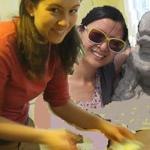 Phil Henshaw Oct 25, 2010 02:56 | Proposal contributor
It's hard to understand how natural systems operate, particularly because it involves highly complex forms of organization that emerge spontaneously through the interactions between unconnected parts. The real secret, and why they can't be modeled effectively, is what makes them work is that the parts of natural systems are engaged in exploring and learning about their own local environments, foraging and dodging if you want a phrase, and it that "grass roots" activity THAT animates and ultimately organizes the whole.
Where natural systems like economies come from is some seed resource and a direction of learning for the parts that begins to multiply. That has its own natural limits, and ends at either a point of exhaustion for that "start-up" phase of development, or end in the formation of a new set of relationships in the environment as the parts help the system change from expand in scale to fitting in with its new world.
I guess my main observation on the social/political process around climate change... is that most everyone seems well intended, but even the leading activists and consultants are not well informed on how nature works. Our whole culture is still working through our large supply of inherited bad information, the errors in expectation responsible for getting us into this whole tangled mess of environmental conflicts.
What I do is work backwards, instead of starting from information I think I can trust, I look for what I can see nature doing quite simply. I don't develop a theory for it, exactly, but build a series of better and better questions. I look for what I can find connected with what I know to be true, to see if it fits with what we thought before. Sometimes that switch in perspective is enormously productive.
I have lots of things on the subject in my (sometimes disorganized as well as sometimes challenging) archive of 30 years of research: www.synapse9.com and blog: www.synapse9.com/blog
|
 Yang Ruan Oct 27, 2010 11:10 |
Hi Phil,
We hope that this tool can help everyone understand the science behind the carbon cycle better as well as have a discussion about possible economic ramifications. The base model for the carbon cycle is C-LEARN, which is a smaller version of a bigger model C-ROADS.
http://forio.com/simulation/climate-development/
On their site, you can see more variables.
We seek feedback on what kind of measures you think would be useful to add for the tools in the Climate CoLab.
This tool focuses on reducing emissions, but there are certainly many different approaches for meeting those targets.
Are you familiar with system dynamics? It is a modeling method that is the basis for C-LEARN. It has also been used to model economic or organizational systems to find leverage points in a system. It sounds somewhat similar to your research.
|
